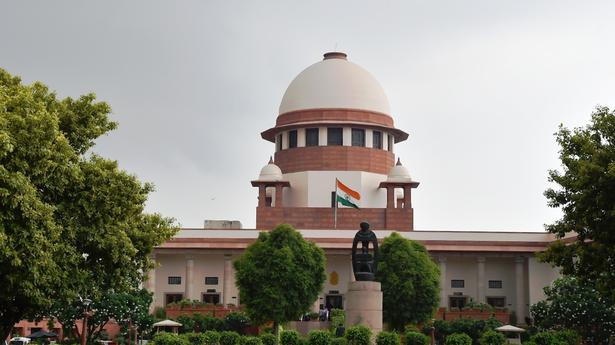
SC reserves verdict on whether ‘same-day sentencing’ in death penalty cases is bad
The Hindu
Three-judge Bench asks if trial judges ought to pause and give every possible opportunity to a convict to avoid the gallows
The Supreme Court on August 16 raised doubts about whether a person should be sentenced to death on the same day he or she is convicted of a crime.
Noting that the death penalty is “irreversible”, a three-judge Bench led by Justice U.U. Lalit asked if trial judges ought to pause and give every possible opportunity to a convict to avoid the gallows before allowing the state to take his or her life.
The Supreme Court reserved its judgment on the question of “same-day sentencing” after a two-hour long hearing. The cardinal issue is whether a convict, sentenced to death merely hours after conviction has enough time to present mitigating circumstances which led him to commit the crime.
Attorney General K.K. Venugopal had opposed same-day sentencing, even suggesting that the entire proceedings should be adjourned after the stage of conviction in cases in which a person can be put to death as a form of punishment if found guilty. The defence team could use the time to collect mitigating factors.
As of now, no effort is ever made to dig deeper into a convict's childhood experiences, multigenerational history of physical and mental health issues, exposure to traumatic events, and other familial, social and cultural factors crucial in order to undertake an individualised sentencing enquiry. Mitigatory circumstances quoted in favour of a convict while sentencing are often basic. These included the convict's immediate family structure, education, and work prior to arrest.
During the hearing, Justice Lalit mused whether the mitigating circumstances ought to be brought to the attention of the trial court at the very stage of framing charges or even after the conclusion of the prosecution evidence.
The court’s amicus curiae, senior advocate Siddharth Dave, agreed that the trial judge should take the effort to call for every bit of material or evidence which could be seen as a mitigating circumstance in a death case.











